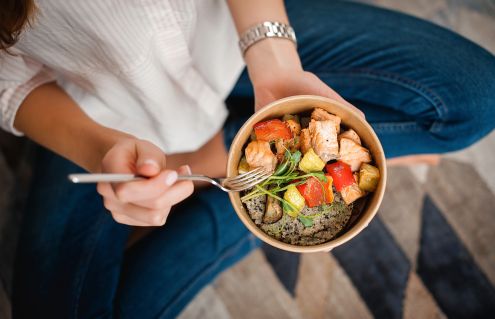Our defence against the flu
How to avoid the dreaded dose of flu this winter

‘Germs are nothing by themselves, their environment is everything,’ said Louis Pasteur. Why?
Because the environment – our immune system, and our antioxidant and anti-inflammatory defences – are generally much stronger than any virus or bacteria. Winter is the time to remember this essential message, which Pasteur, who discovered the existence of viruses and bacteria and then invented the first vaccine against them, apparently uttered on his deathbed.
During the 1918 Spanish flu pandemic, some people proved to be far more resistant to the virus than others. In his book on the subject, Thierry Souccar recounts the experiments carried out at the time. An American doctor, Milton Roseneau, deliberately infected more than 100 young US naval recruits with germs secreted from flu-infected patients, injecting secretions directly into their nostrils, throats and eyes. Ten days later, not one recruit showed any flu-related symptoms. Their defences had blocked the virus.
Many recent studies confirm the importance of several factors that help to protect us against viral infections.
• Sleep: At least eight hours per night significantly reduces the risk of catching a cold after exposure to the virus (compared with people getting seven hours of sleep or less). Whenever possible, use your sleeping time as an antiviral defence.
• Physical exercise: Moderate physical activity (30 minutes’ walking five days a week, for instance) stimulates the immune system and considerably increases our resistance to infection.
• Daily diet: Cut back on sugar and white flour, and reduce your overall fat intake. Use olive and rapeseed oil when possible, and increase your daily portions of fruit and vegetables. Eat garlic, onions and shallots – during World War I, French soldiers ate two or three raw garlic cloves a day as protection against flu. You should also eat lots of broccoli, cabbage and mushrooms, which are used in Japanese hospitals to boost the immune system. Drink three to six cups of green tea a day too, preferably not at mealtimes (it can impair iron absorption). It contains EGCG, a catechin that works actively against cancer and is also a powerful anti-viral. A US study showed that it reduced the risk of catching flu by a third. Use herbs and spices, such as oregano, thyme and turmeric, in your daily cooking – at least in one meal – for their anti-viral and anti-inflammatory properties. It’s encouraging to know that those things that strengthen our systems work indiscriminately against all sorts of illnesses we’d like to keep at bay, from flu to cancer. Pasteur’s intuition was one of genius: the environment our body offers is what counts.









